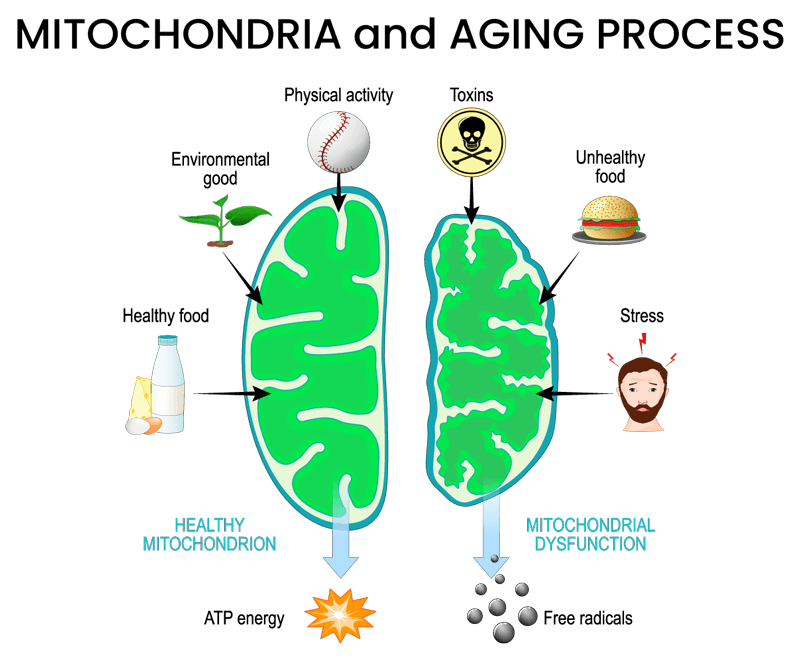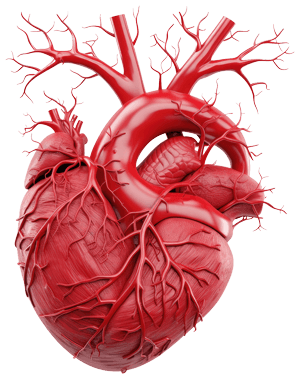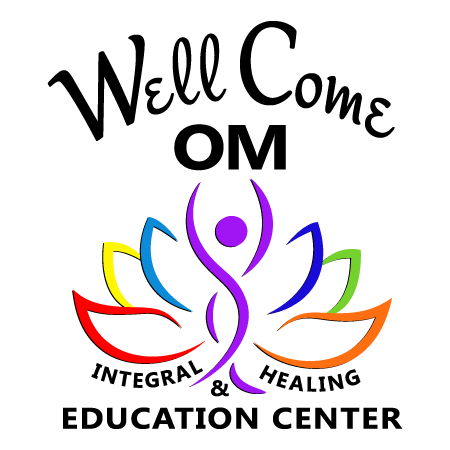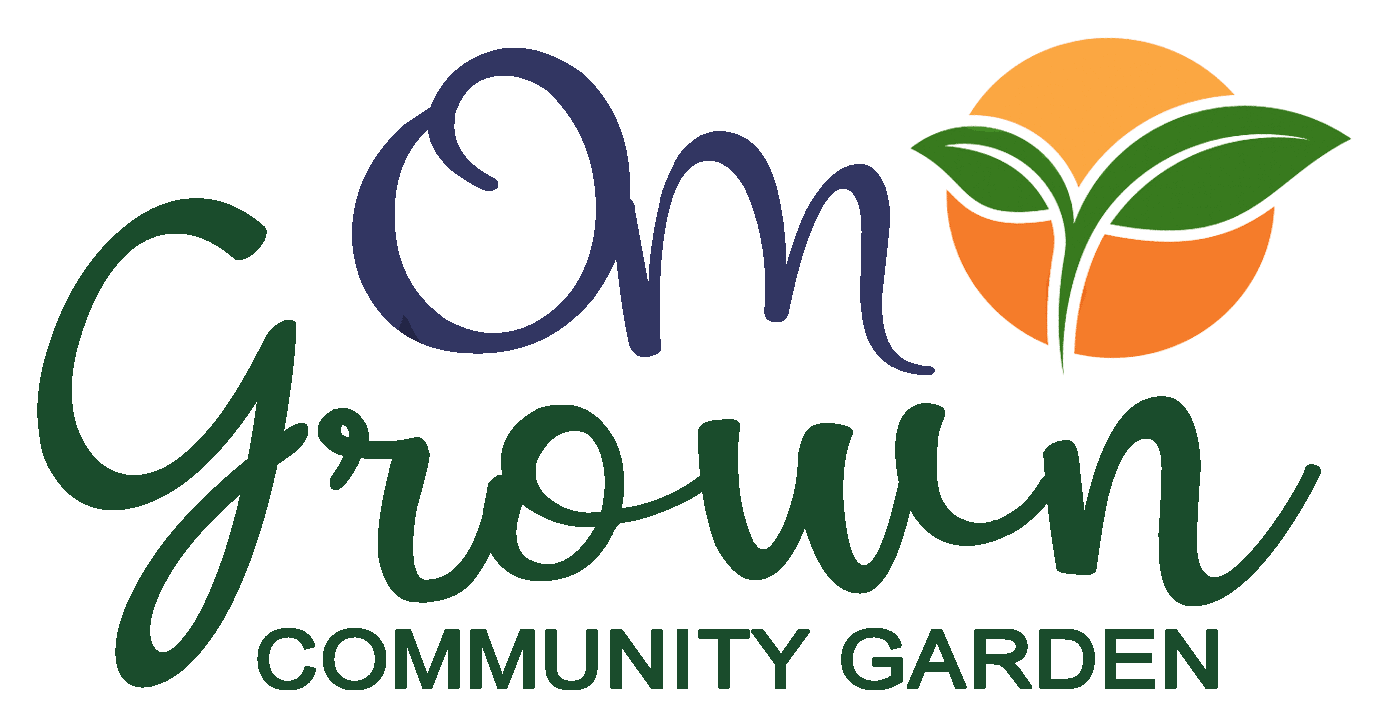When talking about vitality, we’re delving into the essence of what it means to be alive. The term itself, originating from the Latin vitalitatem, refers to the ‘life force’ or aspects ‘pertaining to life.’ But what does it truly mean to possess vitality? It’s the vibrant manifestation of health in every sense of the word.
Table of Contents
What Is Vitality?
The World Health Organization (WHO) in 1948 described health as “the state of complete physical, mental, and social well-being and not merely the absence of disease or infirmity.” This profound definition underscores that health—and, by extension, vitality—is not just about the absence of illness but embodies total well-being. Further clarifying this, in 1986, the WHO remarked that health is “a resource for everyday life, not the objective of living,” emphasizing it as a positive concept highlighting social and personal resources and physical capabilities.
The ancient poet Virgil famously stated 2,000 years ago that “health is wealth.” This adage beautifully encapsulates the value of health and vitality in our lives, prompting us to ponder whether the converse could also hold true. What are your thoughts on this?
Vitality in our lives manifests as mental vigor and physical energy, achievable through a harmonious balance of various aspects:
- Mindfulness and discipline create a foundation for self-awareness and control.
- Gratitude and respect for all of life enrich our souls and interactions.
- Proper solid and liquid intake and excretion ensure the nourishing and cleansing of our physical bodies.
- Daily mental and physical conditioning keeps us sharp and robust.
- Fulfilling sleep recharges our body and mind.
- Security in our domicile and finances provides peace of mind.
- Toxic stress reduction, loving supportive relationships/socialization, and spirituality nurture our inner peace and connection with the universe.
- Acknowledgment of the impermanence of our lives offers perspective and urgency to live fully.
Consider the acronym ‘VITALS’ as a mnemonic to remember these essential elements that fuel our life’s journey. This acronym not only helps us keep track of these vital components but also reminds us of the intricate systems and functions that sustain us:
- V: Vessels, vasculature, vibrations, vitamins, virility
- I: Intake, ingestion, inspiration, immunity
- T: Teeth, tongue, thyroid, telomere, testosterone
- A: Alveoli, adrenal glands
- L: Large intestine (colon), liver, lungs, lymphatics
- S: Sinuses, sino-atrial node, stomach, small intestines, spine, solar plexus, skin, spermatic cord, scrotum, sun, sexuality
While not exhaustive, these components are fundamental to nurturing our health and vitality. Focusing on these vital elements ensures the continual ticking of life’s clock, enriching our existence with energy and vigor.
The Chronology of the Male Physiological Changes
Understanding the chronology of male physiological changes is essential in appreciating the importance of a holistic approach to health. When met with awareness and proactive lifestyle adjustments, these changes can significantly impact vitality and quality of life.
In the 20s, a man is at his physical prime, with endurance and testosterone levels peaking between 25 and 30. This period is characterized by high energy, endurance, and an enhanced mind-body connection. Remarkably, the benefits of this peak physical condition can be extended throughout most of a man’s life with a commitment to a wellness-driven lifestyle.
The 30s bring the first signs of change, with a potential decline in testosterone levels. However, this decline is not inevitable and can be mitigated with increased exercise intensity and optimal nutritional intake. This decade is a pivotal time for making healthy lifestyle choices, including career and partnerships and avoiding harmful habits such as smoking, excessive alcohol consumption, and drug use (including prescription medications). Maintaining healthy social circles also plays a crucial role during this phase.
By the 40s, many men may experience an increase in body fat and a decrease in the efficiency of lipid clearance, partly due to hormonal imbalances influenced by environmental factors, lifestyle, and stress. Counteracting these changes is possible through improved lifestyle habits, including a diet rich in complex plant foods and seafood, supplementation, and an overall wellness program.
The 50s may usher in a more pronounced increase in heart and vascular diseases and challenges with vision, hearing, and dental health. Insulin resistance, diabetes, weight gain, stress, reduced activity, lower testosterone, decreased libido, endurance, and vitality can become more prevalent. Active management of health and wellness is crucial during this decade.
Entering the 60s, men will likely observe changes in bone, joint, and muscle strength and density, along with potential prostate issues. These changes underscore the importance of continued attention to health and wellness practices.
The 70s may see the persistence of previously noted changes, emphasizing the need for ongoing commitment to healthy lifestyle choices.
In the 80s, prostate issues may become more pronounced, but, as with earlier decades, the impact of these changes can be mitigated with the right health and lifestyle strategies.
By the 90s, skeletomuscular losses and sarcopenia become significant concerns. Staying on track with a comprehensive wellness program is essential for maintaining health and vitality.
Beyond 100, maintaining the wellness practices established in earlier years becomes even more critical. The foundation of health laid down through decades of mindful living pays dividends in longevity and quality of life.
Each decade brings challenges but also opportunities to enhance and preserve vitality through mindful, health-oriented choices. Understanding these physiological changes allows men to navigate their health journey with informed confidence, making the right moves to support a vibrant, fulfilling life at every stage.

On Gut Health
In the realm of holistic health, the significance of gut health cannot be overstated. A robust microbiome is the cornerstone of a healthful life brimming with vitality. The microbiome, that vast community of microorganisms residing in our digestive system, plays a crucial role in our overall health, influencing everything from our immune system to our mood.
Foods that Enhance Your Microbiome
To nurture a healthy microbiome, one’s diet should include a variety of foods known for their beneficial effects on gut flora:
- All plants are fundamental for their fiber content, which serves as a prebiotic, feeding good bacteria.
- Fermented foods such as miso, tempeh, natto, pickled vegetables, kombucha, kimchi, sauerkraut, and yogurt/curds are rich in probiotics, the live beneficial bacteria themselves.
Engaging in gardening with organic soils can also act as a microbiome enhancer. The natural soil microbes interact with our skin and, when we consume the fruits of our labor, our gut. This connection to the earth and its microbiome is another thread in the tapestry of holistic health.
Supplemental Probiotics
In addition to diet, supplemental probiotics can offer a direct method of bolstering gut flora. Key strains to look for include:
- Bifidobacteria
- Lactobacillus
- Acidophilus
These bacteria are instrumental in maintaining a balanced gut microbiome, helping to keep pathogenic organisms in check. A combination of fermented foods, vitamins B complex, C, D, and E — either from whole foods or high-quality supplements — can support healthy functioning across various bodily systems, including immune, hormone, cardiovascular, neurological, skeletomuscular, and genitourinary tracts.
However, it’s important to note that these dietary and supplemental strategies should be part of a broader healthy lifestyle. Physical activity, stress management, adequate sleep, and avoiding harmful substances are all critical components of a lifestyle that supports optimal gut health and, by extension, overall vitality.
By prioritizing gut health through mindful dietary choices and lifestyle habits, we can enhance our body’s resilience, vitality, and capacity for wellness. The gut is often referred to as the body’s “second brain,” and by nurturing it, we’re taking a fundamental step towards a holistic approach to health.
Mighty Mitochondria and Metabolic Flexibility

Strategies to Support Mitochondrial Health
- Exercise: Incorporating daily moderate-to-high-intensity exercises can significantly boost mitochondrial efficiency and counteract the effects of aging. Physical activity stimulates the production of new mitochondria and improves the function of existing ones.
- Mindful Movement: Practices such as yoga, Tai Chi, Qi Gong, dance movements, and breathing exercises not only reduce stress but also enhance cellular health, including that of mitochondria.
- Reduced Exposure to Electromagnetic Fields: Limiting exposure to wireless and cellular devices, especially in high-density areas like offices and airports, can contribute to cellular health. Use mitigating techniques, such as keeping cell phones in airplane mode and away from the body, using air tubes, and considering radiation shielding clothing.
- Infrared Saunas and Sound Healing: The use of infrared saunas can promote detoxification and support mitochondrial function. Sound healing sessions utilizing solfeggio frequencies (e.g., 417Hz, 528Hz, 639Hz, 963Hz) can also benefit cellular health and well-being.
- Nature and Sunlight: Spending time in nature, such as the beach or woods, and practices like earthing (walking barefoot on the earth) can improve overall health. Sunlight exposure is essential for maintaining hormone balance, maintaining skeletal muscle structure, maintaining melatonin production, and regulating circadian rhythms. These activities also promote happiness and well-being.
- Diet and Nutrition: Emphasizing whole, plant-based foods while avoiding highly processed, sugar-laden foods and excessive consumption of poultry and alcohol can support mitochondrial health. The inclusion of antioxidants, omega-3 fatty acids (while reducing omega-6 intake), pregnenolone or DHEA, and DIM (found in Brussels sprouts) in the diet can further enhance cellular function.
- Community Engagement: Joining groups that are environmentally conscious, supportive of communal health, and devoted to freedom can foster a sense of belonging and reduce stress, indirectly supporting mitochondrial health.
The mighty mitochondria play a crucial role in our body’s energy production and overall health, especially as we age. We can maintain metabolic flexibility and vitality by adopting a lifestyle that supports mitochondrial health through exercise, mindful practices, reduced EMF exposure, sound healing, nature activities, sun exposure, and a balanced diet. These strategies help mitigate the aging process and improve our quality of life, allowing us to thrive at any age.
Power Losses — Why?
In the pursuit of optimal health and vitality, identifying and understanding the factors that contribute to power losses in our bodies is crucial. These “enemies” of the body range from lifestyle choices to environmental exposures, which can significantly impede our physical and mental well-being. Let’s delve into some of the primary adversaries we face:
- Inactivity: A sedentary lifestyle is one of the most significant contributors to declining health, leading to a host of metabolic and cardiovascular issues.
- Programming and Propaganda: The constant barrage of media can shape our beliefs and behaviors in ways that are not always conducive to health, leading to stress and disempowerment.
- Negative Energies, Low Vibrations, Fear: Emotional and psychological stressors can adversely affect physical health, manifesting in various ailments and reduced vitality.
- Poor Breath Techniques: Breathing is foundational to life, and incorrect breathing patterns can significantly affect our energy levels and stress responses.
- EMF Exposure: Electromagnetic fields from wireless and cellular devices are a growing concern for their potential impact on cellular health and well-being.
- Lack of Sunlight: Staying indoors and avoiding sunlight disrupts our circadian rhythms, vitamin D synthesis, and overall mood.
- Junk Foods, Fast Foods, Fast Eating: The modern diet, rich in processed foods, sugars, and unhealthy fats, contributes to chronic diseases and diminished energy.
- Overeating and Excesses of Animal Fats and Proteins: Excessive consumption can lead to metabolic imbalances and health issues.
- GMO Foods and Artificial Ingredients: Genetically modified organisms and synthetic additives may pose risks to health and vitality.
- Glyphosate, Pesticides, Herbicides: Exposure to these chemicals is linked to a range of health problems, including hormonal imbalances and cancer.
- Military Exposures: Veterans may face unique health challenges due to exposure to toxic substances during service.
- Environmental Pollution: Car exhaust, industrial emissions, and other pollutants can have profound effects on our respiratory and overall health.
- Plastics and Metals: Exposure to harmful chemicals in plastics and metals can disrupt endocrine function and pose health risks.
- Drugs: The wide array of pharmaceuticals, while sometimes necessary, can also have adverse side effects and impact our body’s natural functions.
- Smoke, Smog, Air Pollution: These environmental factors can lead to respiratory issues and decreased oxygenation of the body.
- Chemtrails: Though controversial, concerns about chemical spraying in the atmosphere and its impact on health persist.
- Chlorine, Fluoride, Bromine: Exposure to these halogens, other than iodine, can interfere with thyroid function and overall health.
Understanding these adversaries is the first step toward mitigating their effects. By addressing these issues through lifestyle changes, environmental awareness, and mindful choices, we can reclaim our vitality and lead healthier, more empowered lives.
Virility Is a Function of the Heart and Blood Vessels Integrity
In the journey toward maintaining and enhancing men’s health, the integrity of the heart and blood vessels emerges as a pivotal factor, especially when it comes to virility. Atherosclerosis, the accumulation of plaques and alterations in the endothelial lining of blood vessels, stands as a formidable enemy against virility. This condition can significantly impair blood flow, chi, and prana, all essential for libido, the ability to achieve erections, and their sustainment.

Contributing Factors and Solutions
Factors such as obesity, diabetes, a sedentary lifestyle, and the array of previously discussed body adversaries contribute to the disruption of blood vessel health. The pathway to combating these challenges lies in making informed and healthful food choices that support the vascular system.
Optimal Food Choices
To nurture the health of your vascular system, incorporating certain foods into your diet is key:
- Omega-3 Fats: Found abundantly in salmon, cod, sardines, haddock, red snapper, tuna, walnuts, chia, flax, and black seeds.
- Vegetables and Fruits: Emphasize leafy greens and brightly colored vegetables such as oranges, reds, and purples. Opt for low-glycemic fruits like berries, green apples, papayas, grapefruits, apricots, peaches, plums, cherries, and oranges.
- Nuts and Seeds: Include flax, chia, pumpkin seeds, walnuts, macadamia nuts, olives, olive oil, avocados, and sea vegetables in your diet.
- Grains: Oats, farro, and other ancient grains in their whole form provide essential minerals and antioxidants.
Macro and Micronutrient Guidelines
- Protein: Aim for 0.8-1 gram per kg of ideal body weight, with an increase for those engaged in high levels of athletic activity. A combination of plant and fish/animal protein, favoring more plant and seafood, is recommended for better stamina and longevity.
- Complex Carbohydrates: These should range from 250-400 grams daily, depending on individual energy needs.
- Fats: Intake should be between 50-100 grams per day, emphasizing mono-unsaturated fats (MUFA), medium-chain triglycerides (MCT), and some saturated fats (SFA), tailored to your diet, height, and weight.
For micronutrients, consider daily or at least three times weekly supplementation with niacinamide, resveratrol, berberine, vitamin D3, methylcobalamin (B12), nattokinase, a multi-enzyme formula, shilajit, CoQ10 with PQQ, and other botanicals and minerals such as turmeric compounds, multi-minerals, glycine, L-carnitine, D-ribose, and iodine (with thyroid function monitoring for optimal iodine intake).
The integrity of the heart and blood vessels is fundamentally linked to virility and overall health. A strategic approach involving the right food choices, macro and micronutrient management, and lifestyle adjustments can significantly bolster vascular health. Embracing these changes not only combats atherosclerosis but also enhances vitality, proving that virility is a function of heart and blood vessel integrity.
Be the Best You Can at Your Stage and Beyond
In the grand tapestry of life, your journey to optimal health is personal and profound. The prevailing system may not have guided you toward the pinnacle of well-being, but the power to change lies within you. It’s time to take control and strive to be the best version of yourself at every stage of life and beyond. Here’s how:
Understanding Your Needs
- Begin by identifying your unique needs across all facets of life—mental, physical, emotional, social, spiritual, and financial. Each of these aspects plays a crucial role in your overall well-being.
Digestive and Emotional Harmony
- Aim for three bowel movements a day to ensure digestive health, and strive for minimal disruptions at night for uninterrupted sleep.
- Nurture your relationships with love, respect, and courtesy. Embrace gestures like cuddling and gentle touch to stimulate hormones like oxytocin, enhancing your bond.
Nutritional Wisdom
- Adopt the mantra “eat to live” by prioritizing a diet rich in plants, with limited dairy and animal products. Incorporate more seafood and seasonally appropriate foods to boost vitality.
- Consider intermittent fasting or a 24-hour fast once a week to support metabolic health.
- Increase your vitamin C intake to combat atherosclerosis.
Holistic Detoxification
- Safely remove dental amalgams and root canals to reduce potential toxin exposure.
- Detoxify your body through fasting, chelation, and supplements like activated charcoal, apple pectin, glutathione, milk thistle, and alpha lipoic acid.
Regular Health Checkups
- Schedule health checks at least once a year for generally healthy individuals, with more frequent check-ins for comprehensive monitoring.
Lifestyle Adjustments
- Make time daily for exercise, meditation, and other personal growth activities.
- Limit exposure to technology and embrace practices like wearing blue blockers to protect against blue light and ensuring mobile devices are kept away from bedrooms and sensitive body areas.
Rest and Rejuvenation
- Prioritize getting to bed before 11 pm, ensuring 6-7 hours of quality sleep, and winding down without food or electronic devices a few hours before bedtime.
Community and Environmental Engagement
- Participate in group activities or sports for both physical activity and socialization. Advocate for and practice environmental stewardship.
- Be willing to make significant changes, such as relocating from environments that compromise your health, to protect your well-being.
Proactivity and Participation
- Take active steps towards contributing to your community, state, and country. Engagement and participation are vital in fostering a sense of connection and purpose.
This blueprint for enhancing vitality is not just about personal transformation; it’s a call to action for living a life that honors the intricate connection between individual well-being and the broader community and environment. By adopting these principles, you commit to a path of continuous growth and improvement, ensuring that at every stage of life, you are moving towards being the best version of yourself—healthy, vibrant, and fully alive.
Final Notes
As we draw our exploration of enhancing men’s health and vitality to a close, let’s remember that vitality doesn’t diminish by accident; it fades when we neglect the conscious stewardship of our lives. The journey to sustained well-being begins with a commitment to setting our lives in order, preempting disorder before it takes hold and leaves us scrambling for recovery.
Embracing Self-Responsibility
Shifting away from an overreliance on conventional health approaches demands a deeper accountability towards ourselves. It requires discipline and a profound respect for the body we inhabit—a vessel that, if nurtured with care, has the potential to carry us through life with vigor and purpose.
Questioning the Status Quo
In an age where large institutions increasingly dominate the narratives surrounding health — be it Big Medicine, Big Pharma, Big Agriculture, Government, or Big Tech — it’s crucial to cultivate discernment. Doing your research isn’t just advisable; it’s essential for navigating through the barrage of information, much of which may not align with your best interests or the pursuit of holistic well-being.
Be wary of propaganda and the myriad ways it can infiltrate your life, often under the guise of convenience or authoritative guidance. The path to vitality is personal and unique, with choices that resonate with your deepest values and understanding of health.
A Parting Thought
Let’s hold onto the notion that guidance, while often beneficial, should ultimately lead us back to our own inner wisdom and capacity for making informed decisions about our health. 😊👍 Emojis aside — whether they bring a smile to your face or a slight annoyance — remember that the essence of this journey is about connection to ourselves, each other, and the natural world that sustains us.
“OM all the way” encapsulates this spirit of connection and peace. It’s a reminder that in the vastness of our lives, finding harmony within and extending it outward is a powerful form of medicine that nourishes our vitality at every level.
Here to support and guide, this exploration of men’s health is more than just a compilation of advice; it’s an invitation to engage deeply with your life, making choices that lead to a vibrant, fulfilling existence.
References and Recommended Readings
These references and recommended readings offer a wealth of knowledge on the subjects of metabolism, holistic health, nutritional science, and the molecular underpinnings of health and disease. They serve as a foundational resource for anyone interested in deepening their understanding of achieving and maintaining optimal health through conscious lifestyle choices.
- DeFronzo, R.A., et al. “The Effect of Insulin on the Disposal of Intravenous Glucose.” Diabetes, vol. 30, 1981, pp. 1000-1007, doi: 10.2337/diab.30.12.1000.
- Fuhrman, Joel, M.D. Eat for Life. HarperOne, USA, 2020.
- Goodpaster, B.H., et al. “Metabolic Flexibility in Health and Disease.” Cell Metabolism, vol. 25, 2017, pp. 1027-1036, doi: 10.1016/j.cmet.2017.04.015.
- Group, E., DC. “What Is Natural Health? A Comprehensive Guide to Living Healthy.”
- Kushi, M. The Macrobiotic Path to Total Health. Ballantine Books, USA, 2003.
- Lawless, C., et al. “The Rise of Mitochondrial DNA Mutations.” Open Biology, vol. 10, 2020, 200061, doi: 10.1098/rsob.200061.
- Levy, T., M.D. Stop America’s Number One Killer: Reversing Vitamin Deficiency Found to Be the Origin of All Coronary Heart Disease. LivOn Books, USA, 2006.
- Mackey, John. The Whole Foods Diet: The Lifesaving Plan for Health and Longevity. Grand Central Publishing, USA, 2020.
- San-Millan, I., et al. “The Key Role of Mitochondrial Function on Health and Disease.” Antioxidants (Basel), vol. 12, no. 4, 2023, 782, doi: 10.3390/antiox120440782.
- Scunziano-Singh, M., M.D. Be Consciously Healthy. Wellcome Om Publishing, USA, 2018.





